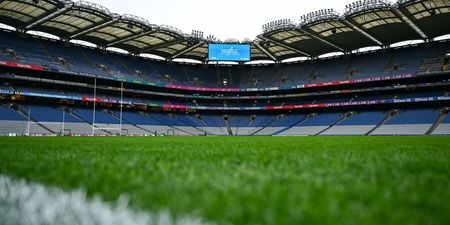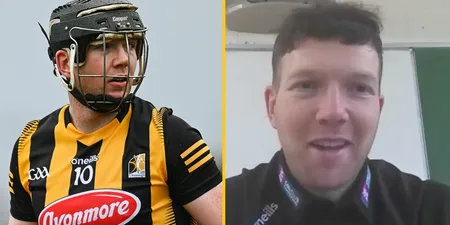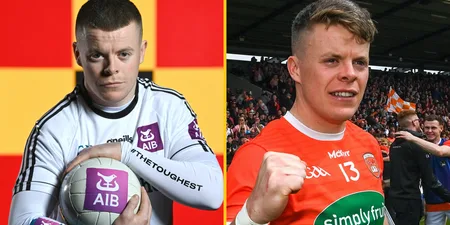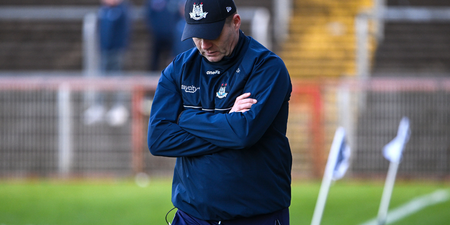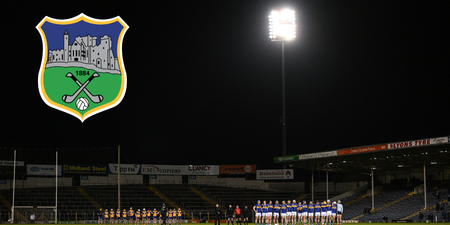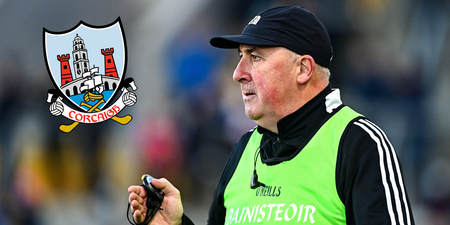Most of our lives is just a series of fleeting images.
They pass us by like towns on a motorway. Like blades of grass on a field. Like training sessions amounting to a greater goal.
But, every once in a while, a moment stuns us as it happens. It catches us. And whilst it might well seem random, brief or insignificant, you know there and then that it’s more than a fleeting image.
You know that this moment – every part of it – will last forever.
On February 15, somewhere in the middle of Ireland, a game took place. A game between a team from Kerry and a small club from Derry. The majority of the island didn’t watch it. Some people probably didn’t even hear tell of it and, no matter what, come 5.30pm that Sunday, the world would still be turning and life would be going on unaffected.
But a couple of hundred people from a rural area in a northern county travelled over 300km to be there. They travelled to the humble Portlaoise for a game of football.
A bus load of players had travelled for longer, for years. Losing finals, taking knocks square on the chin, standing when they were brought to their knees.
A man named Mickey Moran was there, too.
He was there 90 minutes before thrown-in, inspecting every single inch of a plot of land that was now his destiny. He was there in his mind since he guided the club to an historic Ulster title back in December. Probably even since he made a heroic comeback, a defiant one, to the game just over two years ago after illness had interrupted his management career. After it had interrupted what he does best.
Mickey Moran has had more twists and turns and miles in his path before he wound up fighting for immortality on a rain-soaked O’Moore Park. He’s led counties to the brink of greatness, he’s travelled to obscure locations in the middle of Ulster with a fresher’s B team for mid-week friendly games on piss evenings out of no obligation but a slavery to a size five piece of leather.
Mickey Moran knows what it’s like to win. He knows what it’s like to lose and yet, as he readies to lead a group of maroon-laden men into Croke Park, into history, he must feel like that he can no longer fail. He must feel like that isn’t possible anymore.
There was a moment in Portlaoise on February 15 that already springs eternal. After Moran cut a lone figure patrolling his turf, after a team who continue to restore your faith in fairytales warmed up in a patch of grass surrounded by a housing estate 60 minutes from heaven, there was a moment that just took the breath away.
After the infamous Austin Stacks drum had led an army of orange and black into the stadium, singing and chanting and banging their feet, something changed.
Francis McEldowney appeared. Behind him, the rest of the Robert Emmet’s soldiers. Behind them, a roar.
A roar that would’ve deafened you. A roar that silenced the Rockets. A roar that had the Portlaoise stand shaking on its hinges. A roar of defiance. A roar so typical of Slaughtneil and their stubborn resilience and their ability to be heard above the noise, above all of the noise. A roar of a couple of hundred men, women and children who, right there and then, had shut out the world.
This was their world. This was all of it. This was all that mattered.
Before a ball was even kicked, a shout of support, a cry of love not even a minute long stunned anyone lucky enough to be in its vicinity.
A moment to stun you.
A moment that summed up the real meaning of what was happening here. A moment, a brief moment, that showed the millions of others leading to that point. A moment into someone else’s whole life devoted completely and utterly to a game, to a team, to a community.
Slaughtneil head for Croke Park next week and they might win the All-Ireland club championship.
They might not.
In 10 years from now though, no-one will speak any less of Gerald Bradley’s fisted injury time goal. Of Chrissy Bradley’s Ulster final point, Paudie McGuigan’s tackle. They won’t speak in hushed tones about Padrig Kelly’s curling effort from the left wing at O’Moore Park.
And no-one, absolutely no-one – Slaughtneil, Stacks, neutrals, whoever – will attach any less significance to what happened before throw-in in Portlaoise. No-one will play down that roar. No-one will forget that moment. Forever.
Whatever happens on St. Patrick’s Day, that message of defiance, that noise of a community rising from the ashes will go down in the annals of history. And a game of football isn’t going to change that in any lifetime.
But, Jesus, wouldn’t it be nice if they did it?
If you’re lucky enough to be celebrating St. Patrick’s Day at home, why not get to the AIB GAA All Ireland Club Championship finals at Croke Park on March 17th: tickets are available here.






